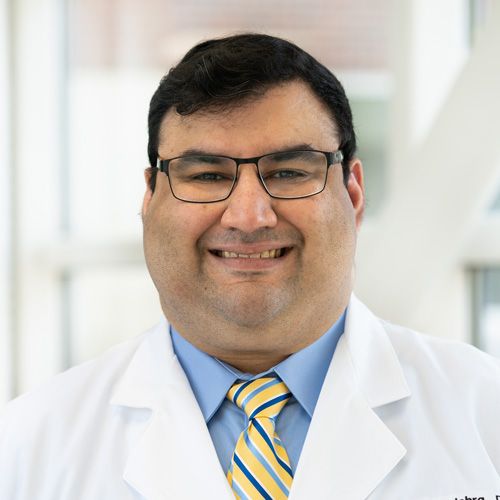If you’ve been diagnosed with colorectal cancer — and are younger than age 50 — you are not alone.
While colorectal cancer mostly affects people over age 50, recent years have shown that the disease is increasing dramatically among younger adults.
Your diagnosis means that you need comprehensive cancer care from experts who treat cancers like yours — in patients like you — every day. We can help.
Our dedicated program for young onset colorectal cancer
We understand that facing cancer at a younger age poses challenges for you and your family that are not experienced by older adults. Your treatment plan will be personalized specifically for you and your cancer, integrating critical support services into your comprehensive care. At Roswell Park, our experts provide:
- Streamlined, multispecialty care with our team of gastroenterologists, colorectal surgeons, medical and radiation oncologists and other experts who focus exclusively on colon and rectal cancers. Having these providers all under one roof ensures optimized and expedited cancer care.
- Genetic testing to determine if your cancer is related to an inherited genetic syndrome and offer guidance to your family members.
- Fertility preservation consultation before you begin treatment to learn and initiate your options if you choose.
- Pelvic floor rehabilitation to rebuild strength and improve bowel function, especially important for rectal cancers.
- Sexual health clinic to address side effects of your treatment that may affect intimacy.
- Young Adult Cancer program that includes mental health support, financial guidance, social and networking events and more, specifically for patients in their 20s and 30s.
- Survivorship program to help you face forward after cancer and aim for your highest level of lifelong wellness.
Young Adults with cancer
Facing a diagnosis of cancer in your 20s or 30s? This means that you and your cancer need a level of care that can only be provided by comprehensive cancer center.
How colorectal cancer is different in younger patients
The colorectal cancers diagnosed in younger adults tend to be different in their biology, pathology, genetics and other features that make treatment and cure more challenging. Colorectal cancers in young adults are more likely to have the following characteristics:
- Advanced stage at diagnosis
- Poor tumor cell differentiation, which means the cancer cells are growing and spreading quickly
- Signet ring cell carcinoma, an aggressive subtype
- Primary tumor location on the left side of colon
- Related to a genetic cancer syndrome

